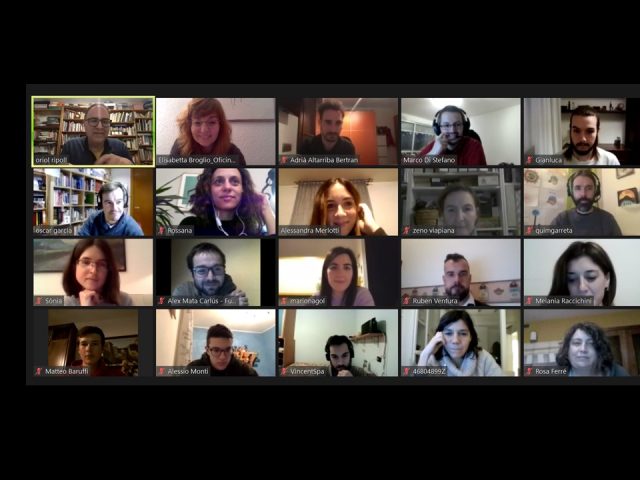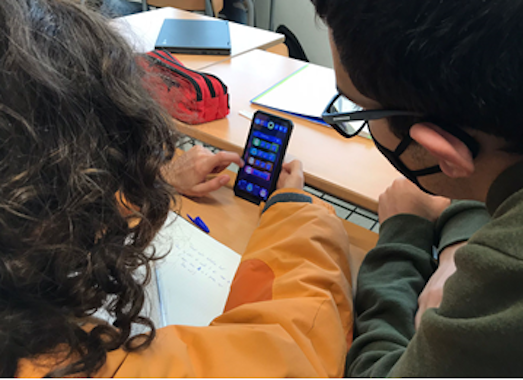Genigma is a citizen science project funded by ORION and led by Centro Nacional de Análisis Genómico at Centre for Genomic Regulation (CNAG-CRG). The goal of this 2-years project was to co-create with citizens a game for smartphones to accelerate cancer research.
Citizens have collaborated on the Genigma project in several moments of the development process. A group of volunteers brainstormed with the scientists at the very beginning to extract the main elements to incorporate in the game, during a co-creation process. Then, once the first digital prototype was ready, more volunteers collaborated in the first test run during the Open Day at the Parc Recerca Biomèdica Barcelona (PRBB). Visitors were asked to play the mini-game on a tablet and have their hands filmed to get information about how the game mechanism worked. This test was also used to start measuring the quality of the scientific data obtained by playing. Here, the professionals engaged by CNAG-CRG (experts in gamification and game production) become essential collaborators of the scientific team. Genigma was their first experience in creating a scientific game and they put their technical knowledge at the service of science discussing multiples approaches or changes to guarantee the usefulness of the data for the research: their level of engagement went clearly beyond what was stipulated in the professional agreement.
While the technical team moved forward with the development, a communication campaign started. The blog on the website was used to explain step by step the advancements of Genigma and social media worked to spread the news. This strategy attracted the attention of several people around the world who wanted to take part in some way, helping as testers or offering any type of collaboration. However, at that time, the CRG team had not foreseen that local community members would not be able to gather in person, welcome the time of COVID-19.
Genigma took this opportunity to convert planned local face-to-face play test events into Zoom sessions to go ahead with the development and invite people from all over the world. Small groups of volunteers (those that participated in early co-creations and others from social media engagements) participated in different interactive sessions playing online, talking with scientists and giving their feedback and suggestions to improve the game.

Among the volunteers were several teachers who contacted the project leader to collaborate and use the game to connect their students with science inside the curricula. In collaboration with the ORION project partner, Fondazione ANT Italia, five schools from Spain and Italy were selected to run the last big test online. Students were asked to play the game, give their feedback and brainstorm on a communication campaign addressed to young people. Interestingly, both schools with a scientific and humanistic background were involved with exciting results for the project about which aspects of the project stimulated their participation and which kind of messages and channels they considered essential to communicate to pairs.

Marc A. Marti-Renom, a senior Project Investigator in the Genigma project, was excited by how the project worked out. At the beginning, he had a genuine interest in citizen science but didn’t really know what was involved. He was pleasantly surprised by the way the public perceived his research, which gave him tools to properly assess the social impact of his group’s work. He also quickly realised that, even the whole process could be slower than initially expected, the benefits of collaborating with people from other backgrounds were high. Work on Genigma made him re-evaluate his communication strategy as well as to accept that, in a co-creation process, you have to give away some part of the decision-making capability, with the benefit of a potential to speed up research in the future.
"With co-creations you give away some part of the decision-making capability with the benefit of a potential to accelerate research in the future.” says Marc A. Marti-Renom
The number of different interactions with different people and use of participatory methodologies has given to the team the opportunity to learn a lot from other people, brainstorm out of their comfort zone and take into account the needs of future players. The challenge for Genigma is now to launch the game, let it grow and get more citizens all over the world to engage with it.
More information
For more information about the Genigma project please get in touch with Elisabetta Broglio, Citizen Science facilitator at the Centre for Genomic Regulation.
Further reading
